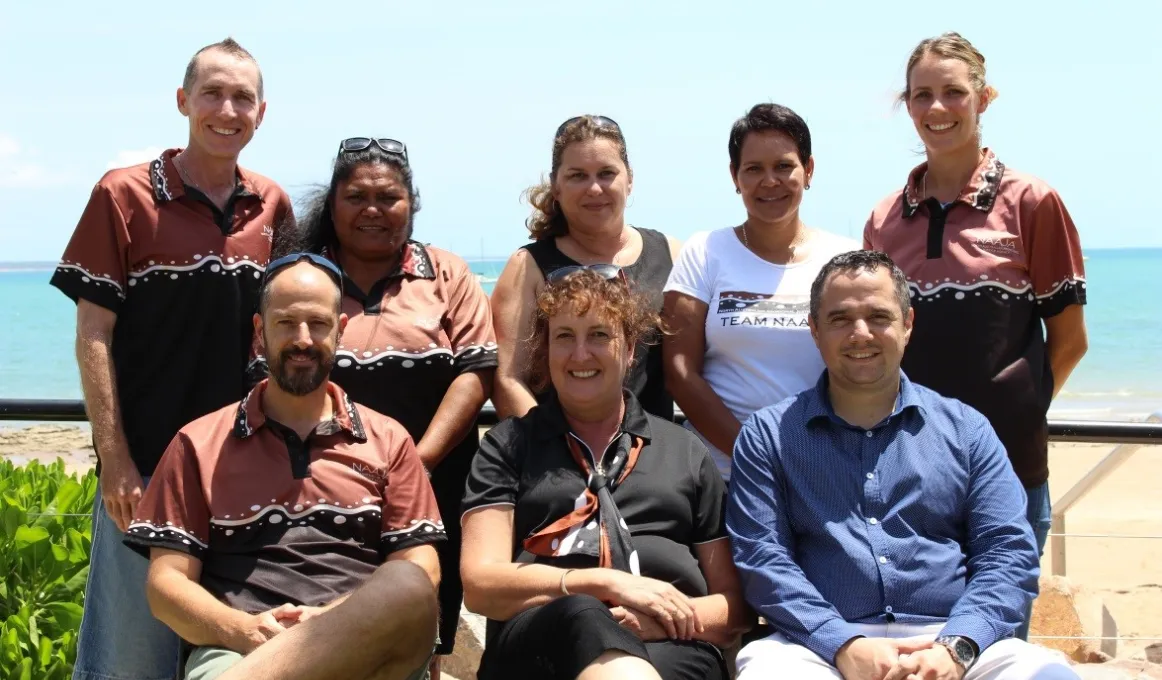Providing culturally relevant support to Indigenous prisoners and juvenile detainees

The North Australian Aboriginal Justice Agency (NAAJA) is providing high quality, accessible and culturally relevant support to Indigenous prisoners and juvenile detainees at the Darwin Correctional Centre and Don Dale Juvenile Detention Centre, from initial contact with correctional services until successful reintegration with the community.
The North Australian Aboriginal Justice Agency (NAAJA) is making a real difference in the lives of Indigenous adult and juvenile offenders with a culturally-relevant service that supports them throughout their interaction with the criminal justice system.
NAAJA’s Throughcare program supports Indigenous prisoners and juvenile detainees at the Darwin Correctional Centre and Don Dale Juvenile Detention Centre. It begins with their initial contact with correctional services and continues until the offender has successfully reintegrated with the community.
Samantha Taylor-Hunt coordinates the program.
“We aim to engage with the clients as close to six months pre-release as possible, and continue with them for a period of time that they designate,” Samantha said.
“So it’s really client-driven, and its emphasis is on client empowerment and individual responsibility.”
A case management plan is designed for each client and includes developing insights into their offending, getting them back to their homes and community, assisting them to comply with any court orders and making sure their mental and physical health is taken care of.
This highly practical and individualised support has resulted in less instances of reoffending, especially in the critical period after prisoners are released.
“Having that contact with someone on a regular basis to talk through how they’re feeling and to talk with them about what might assist them; it just makes sense,” Samantha said.
Senior Indigenous Youth Justice Worker Terry Byrnes said he provides Indigenous juvenile offenders with much-needed assistance in dealing with the courts when they first offend.
“I kind of think I’m the buffer between the court and the young person, and even the young person and their family,” said Terry.
“To just sort of be presenting the human side of the young person, and talking to them about who they are and what they feel, as opposed to what they’ve done.”
Terry said the work he does, in partnership with the police and the courts, is based on giving young offenders the best possible chance of going on to lead a successful young life.
“The whole thing is not just about punishment, but to help the kid onto a better path,” Terry said.
“They’re young people who’ve made mistakes without question, but who generally have not had the same opportunities that a lot of young people have had.”
Terry adopts a broad-visioned wrap around approach, connecting the young people to sporting activities, schools and alternatives to schooling, cultural activities and referring them on to other services. This gives the young people a chance to find a place for themselves in society and to cease offending.
Find out more
The Australian Government’s Indigenous Advancement Strategy is designed to provide better outcomes for Aboriginal and Torres Strait Islander people.
More information is available at NAAJA Throughcare Project.